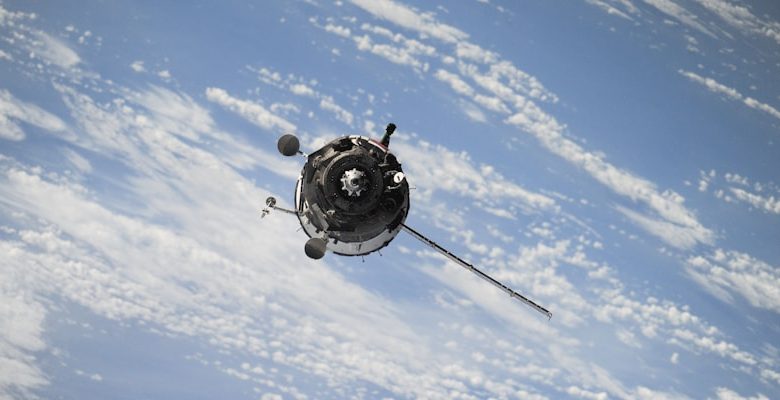The Potential of Blockchain in Space Exploration

- The Rise of Blockchain Technology in Space Exploration
- Exploring the Applications of Blockchain in the Space Industry
- How Blockchain is Revolutionizing Space Missions
- The Role of Blockchain in Securing Space Assets
- Challenges and Opportunities of Integrating Blockchain in Space Exploration
- The Future of Space Exploration: A Blockchain Perspective
The Rise of Blockchain Technology in Space Exploration
Blockchain technology is rapidly gaining traction in various industries, including space exploration. The decentralized nature of blockchain makes it ideal for securely storing and sharing data, which is crucial in space missions where information integrity is paramount. By utilizing blockchain technology, space agencies and private companies can ensure the secure transmission of data between spacecraft and Earth.
Moreover, blockchain can also streamline communication and collaboration among different parties involved in space exploration. Smart contracts, which are self-executing contracts with the terms of the agreement directly written into code, can automate various processes and reduce the risk of human error. This can lead to more efficient and cost-effective space missions.
Another key advantage of blockchain technology in space exploration is its ability to track and manage digital assets such as satellite data or intellectual property rights. By using blockchain, space organizations can create immutable records of ownership and transfer of assets, ensuring transparency and preventing fraud.
As space exploration continues to advance, the integration of blockchain technology is poised to revolutionize the way we conduct missions beyond Earth. By harnessing the power of blockchain, we can overcome challenges related to data security, communication, and asset management, ultimately paving the way for new discoveries and innovations in space.
Exploring the Applications of Blockchain in the Space Industry
Blockchain technology has the potential to revolutionize various industries, including space exploration. By leveraging the decentralized and secure nature of blockchain, the space industry can streamline operations, enhance data management, and improve overall efficiency. Here are some key applications of blockchain in the space industry:
- Data Integrity: Blockchain can ensure the integrity and authenticity of data collected from space missions. By storing data in a decentralized and immutable ledger, blockchain can prevent tampering and unauthorized access.
- Supply Chain Management: Blockchain can optimize the supply chain management process for space missions by providing transparency and traceability. Smart contracts can automate transactions and ensure compliance with regulations.
- Secure Communication: Blockchain can enhance the security of communication systems used in space exploration. By encrypting data and decentralizing communication networks, blockchain can protect sensitive information from cyber threats.
- Tokenization of Assets: Blockchain can facilitate the tokenization of assets in the space industry, allowing for fractional ownership of spacecraft, satellites, and other assets. This can democratize access to space exploration and attract new investors.
- Smart Contracts: Smart contracts can automate and self-execute agreements between parties involved in space missions, such as launch service providers, satellite operators, and data users. This can reduce transaction costs and minimize disputes.
Overall, the integration of blockchain technology in the space industry has the potential to drive innovation, increase collaboration, and unlock new opportunities for exploration beyond Earth. As the space sector continues to evolve, blockchain is poised to play a crucial role in shaping the future of space exploration.
How Blockchain is Revolutionizing Space Missions
Blockchain technology is revolutionizing space missions by providing a secure and transparent way to record data and transactions. This innovative technology offers a decentralized and immutable ledger that can be used to track spacecraft components, monitor mission progress, and ensure the integrity of data transmitted between Earth and space.
One of the key benefits of blockchain in space exploration is its ability to enhance security and reduce the risk of data tampering or hacking. By using cryptographic algorithms and consensus mechanisms, blockchain can verify the authenticity of information exchanged between different parties involved in a space mission. This ensures that sensitive data is protected and mission-critical operations are safeguarded against cyber threats.
Moreover, blockchain can streamline the process of coordinating complex space missions by enabling real-time tracking of resources, schedules, and communications. This transparency and efficiency can help space agencies and private companies collaborate more effectively, leading to cost savings and faster mission execution. By leveraging blockchain technology, space exploration can reach new heights of innovation and reliability.
The Role of Blockchain in Securing Space Assets
Blockchain technology plays a crucial role in securing space assets in the realm of space exploration. By leveraging blockchain’s decentralized and immutable nature, organizations can ensure the integrity and security of critical data and transactions related to space missions.
One of the key advantages of using blockchain in space exploration is its ability to create a transparent and tamper-proof record of all activities and transactions. This not only enhances the overall security of space assets but also helps in preventing unauthorized access and fraudulent activities.
Furthermore, blockchain technology can enable secure communication and data exchange between different parties involved in space missions, including government agencies, private companies, and research institutions. This ensures that sensitive information is protected from cyber threats and data breaches.
Overall, the integration of blockchain in securing space assets has the potential to revolutionize the way we approach space exploration, making it more secure, efficient, and reliable. As technology continues to advance, blockchain will likely play an increasingly important role in safeguarding the future of space exploration.
Challenges and Opportunities of Integrating Blockchain in Space Exploration
Integrating blockchain technology in space exploration poses both challenges and opportunities for the industry. It is crucial to carefully evaluate the potential benefits and drawbacks of adopting this innovative technology in such a complex and high-stakes environment.
- Challenges:
- 1. Security Concerns: Ensuring the security of blockchain networks in space can be challenging due to the inherent vulnerabilities of the technology.
- 2. Technical Limitations: Implementing blockchain in space systems may require significant technical expertise and resources, which could pose obstacles for some organizations.
- 3. Regulatory Hurdles: Navigating the regulatory landscape surrounding blockchain technology in space exploration can be complex and time-consuming.
- Opportunities:
- 1. Enhanced Data Integrity: Blockchain can provide a secure and tamper-proof way to store and transmit data, ensuring its integrity in space missions.
- 2. Improved Supply Chain Management: Utilizing blockchain can streamline supply chain processes for space exploration missions, enhancing efficiency and transparency.
- 3. Decentralized Operations: Blockchain technology allows for decentralized operations in space, reducing reliance on centralized systems and improving resilience.
Overall, the integration of blockchain in space exploration has the potential to revolutionize the industry by enhancing security, efficiency, and transparency. By addressing the challenges and leveraging the opportunities presented by this technology, space agencies and organizations can unlock new possibilities for future missions beyond Earth.
The Future of Space Exploration: A Blockchain Perspective
When considering the future of space exploration, it is essential to examine the potential impact of blockchain technology on this exciting field. Blockchain has the capability to revolutionize the way space missions are conducted, offering increased security, transparency, and efficiency in various aspects of the exploration process.
One key area where blockchain can make a significant difference is in the management of data. Space exploration generates vast amounts of data, ranging from telemetry and sensor readings to images and videos. By utilizing blockchain technology, this data can be securely stored and shared among different entities involved in space missions, ensuring its integrity and authenticity.
Moreover, blockchain can also streamline the process of coordinating activities between different parties in the space exploration ecosystem. Smart contracts, self-executing contracts with the terms of the agreement directly written into lines of code, can automate various tasks such as resource allocation, scheduling, and communication, reducing the need for manual intervention and minimizing the risk of errors.
Furthermore, blockchain has the potential to facilitate decentralized autonomous organizations (DAOs) in space exploration. DAOs are organizations run by smart contracts and governed by their members, allowing for a more democratic and transparent decision-making process. In the context of space missions, DAOs could enable a more collaborative and inclusive approach to exploration, with stakeholders having a direct say in the direction of projects.
In conclusion, the integration of blockchain technology in space exploration holds great promise for the future of this field. By leveraging the security, transparency, and efficiency that blockchain offers, we can unlock new possibilities for innovation and discovery in the vast expanse of outer space.



